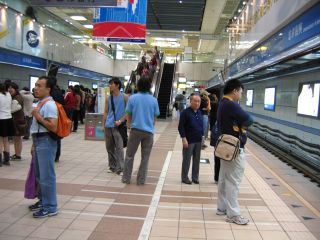First published in Taipei Time on December 17, 2016
Taiwan’s domestic politics are getting more trivial as seen from the outside. This is good news and it reveals that Taiwan is becoming a normal nation in many aspects. Taiwan’s domestic politics are concerned with topics as in other nations, including same-sex marriage, pension reforms and labor laws.
The Chinese Nationalist Party’s (KMT) self-inflicted election loss and internal problems have diminished the voices calling for unification with China. It has also significantly diminished the forces creating democratic problems that we have seen over the past eight years of the KMT government. In other words, the KMT contributed to the unfortunate, non-trivial politics.
Taiwan has changed, so it is time to debate the nation in its own right, outside of the context of China. More than ever, meetings between Taiwanese and European politicians, as well as others, should be considered visits between nations with trade opportunities and other mutually beneficial exchanges. Also, Taiwan should stop explaining its “status quo” policies unless asked and EU members should allow the top five ministers to visit.
Unfortunately, some European politicians are visiting Taiwan for the wrong reasons. It should no longer be enough to visit on “thank you” vacations in return for long-term support. Taiwan still sees European politicians focusing on symbolic handshakes with President Tsai Ing-wen (蔡英文) rather than beneficial mutual exchanges.
However, Taiwan and the EU have an excellent trade cooperation and fixed annual meetings, while the European Parliament has passed several resolutions on Taiwan. Moreover, European politicians and governments have in general looked forward to the Democratic Progressive Party-led government for several reasons, including trade. Europe is ready to improve trade agreements with Taiwan and several European companies are already active in Taiwan regarding investments.
Despite this, European politicians could be far more active in understanding the nation’s political dynamics by engaging much more directly with local parties at various levels. US leaders do a much better job.
It is slowly getting better, but the US is the main focus for Taiwanese politicians. This focus is understandable, but the EU is the largest investor in Taiwan. Therefore, it is embarrassing that Taiwan has not yet appointed a new representative to Brussels. The current representative has shown no appreciation of the government’s policies.
It is difficult not to get the impression that the EU, as the largest investor in Taiwan, is not so important. Considering the volatile international situation with an unreliable US president-elect Donald Trump, delivery to European friends is crucial. It is not only a symbolic gesture, but a signal of genuine mutual friendship and cooperation.
European non-governmental organizations can do another job for Taiwan and make connections and events that can ease the volatile international situation, providing solid support no matter the political dynamics in Europe. This requires a more active engagement with European civil society.
Taiwan’s domestic politics are getting more trivial, but the world has not adjusted its policies. It has in many aspects not fully realized the changes in Taiwan. Diversification of trade and improving the bonds between democratic nations are important, and civil society in Europe can help remind the public, politicians and journalists that Taiwan is becoming a normal nation and that it should be treated as such.
There is a long way to go regarding knowledge about Taiwan outside academic, business and diplomatic circles.
See Taiwan as a normal nation; that is its future




